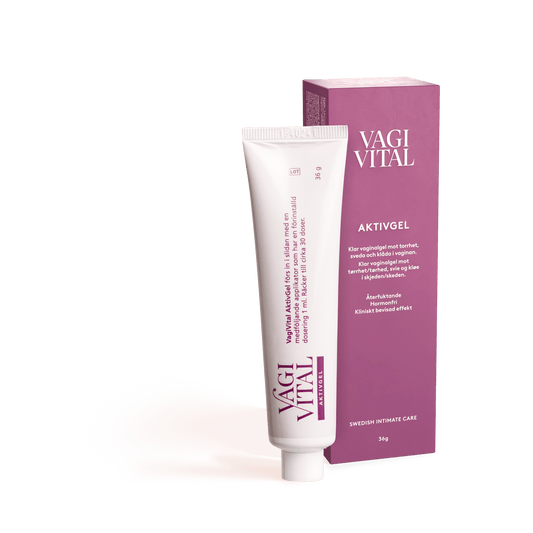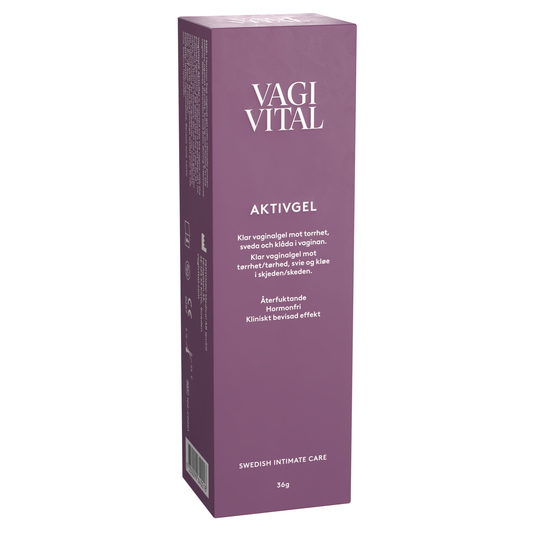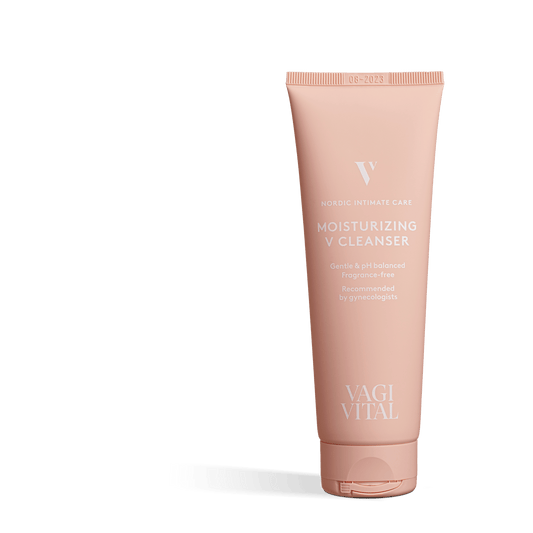ADHD and Menopause – Symptoms, Research and Advice for Women with ADHD
Suddenly, nothing works the way it used to. Your memory falters, your mind feels foggy, and your emotions are all over the place. Maybe you've had ADHD your whole life – or maybe you're only starting to wonder now. Why does menopause affect women with ADHD differently? What does the research say? And what can be done – whether you have a formal diagnosis or just a strong suspicion?
AN OVERLOOKED CONNECTION
For a long time, awareness of ADHD in adult women has been low. Many have gone through life feeling “too much,” “too forgetful,” or “too chaotic” – without ever getting an explanation. But something often changes in your 40s or 50s. Your period becomes irregular. Your brain feels sluggish. Your mood swings. And the old strategies you used to cope with life – they just don’t work anymore.
This is often when women begin to sense that something deeper is going on. Because menopause can amplify ADHD symptoms – or even reveal them for the very first time.
WHAT IS ADHD – AND HOW DOES IT PRESENT IN WOMEN?
ADHD isn’t just about being hyper or unable to sit still. It’s about how the brain processes information, manages emotions, and regulates energy. Many women with ADHD describe:
🌸 easily becoming overstimulated – or bored
🌸 struggling with planning, organizing, and getting things done
🌸 emotional ups and downs that come quickly
🌸 holding themselves to high standards while battling low self-esteem
In women, ADHD often shows up more internally than in men – as anxiety, worry, restlessness, impulsive decisions, or feeling constantly overwhelmed.
MENOPAUSE – A HORMONAL ROLLERCOASTER
During perimenopause (the transition before menopause), estrogen levels begin to fluctuate. This affects not only your cycle but your whole body – including your brain. Since estrogen has a direct influence on neurotransmitters like dopamine and serotonin, your memory, emotions, sleep, motivation, and focus are also affected. For women with ADHD – where these functions may already be vulnerable – it can feel like someone has pulled the plug.
WHY DOES MENOPAUSE HIT WOMEN WITH ADHD HARDER?
Many of the symptoms discussed – brain fog, sleep issues, emotional overload – are common during menopause for most women. But for women with ADHD, the intensity and duration of these symptoms can be much more severe, and the brain often has a harder time compensating.
People with ADHD are generally more sensitive to hormonal shifts, stress, and sleep deprivation. So when estrogen drops, the challenges they already face can become magnified – symptoms may hit harder, last longer, and have a greater impact on daily life.
For some, it’s during menopause that undiagnosed ADHD finally comes to light.
WHAT WE KNOW – LATEST RESEARCH
The research on how menopause affects women with ADHD is still in its early stages. But experts and scientists have already made important observations and drawn conclusions that help shed light on this complex intersection.
🔬 ADHD medication helped even women without a diagnosis A study from the University of Pennsylvania found that a common ADHD medication improved focus, organization, and memory in menopausal women – even those without a formal ADHD diagnosis. This suggests that menopause can cause a temporary brain imbalance that mimics ADHD.
🧠 Menopause affects the brain’s control center – especially in women with ADHD When estrogen levels drop, it impacts the brain’s frontal lobes – the region responsible for planning, impulse control, emotions, and working memory. In women with ADHD, these areas already function differently. The brain may struggle more with filtering thoughts, planning, and regulating impulses. When estrogen dips, it can feel like the brain shifts into low power mode – and many report “losing themselves.”
⚙️ What we know about ADHD and the brain There are no specific studies yet on how menopause impacts the prefrontal cortex (the brain region responsible for planning, focus, and emotional regulation) in women with ADHD. Existing research either focuses on women in menopause generally, or individuals with ADHD regardless of hormonal phase.
However, we do know:
🌸 Menopause affects the prefrontal cortex and can lead to reduced function in this area. 🌸 In individuals with ADHD, this part of the brain often works differently from the start. 🌸 That’s why researchers believe women with ADHD are likely to be more strongly affected – because both conditions impact the same brain region.
👉 More research is needed to fully understand how these factors interact.
😴 Stress and sleep problems worsen ADHD during menopause Many women with ADHD already struggle to recover from stress and often have poor sleep. Menopause adds night sweats, anxiety, and hormonal fluctuations, often making these issues worse. This can affect mood, energy, and the ability to handle everyday demands.
👉 It’s also common for women to receive an ADHD diagnosis for the first time during menopause – when hormonal changes make symptoms more obvious and harder to manage.
SUPPORT YOUR BODY – WHEN ESTROGEN DECLINES
When estrogen levels fall, it’s not just your brain that suffers – your vaginal health can too. Dryness, irritation, itching, and pain during sex are common. These issues can affect sleep, stress levels, libido, and self-esteem.
💧 VagiVital AktivGel is a hormone-free, clinically proven gel that treats vaginal dryness. It adheres to the vaginal lining and slowly releases moisture over time – offering long-lasting hydration without a sticky feel. It can also be used alongside local estrogen treatments – many women need that extra help to restore vaginal balance.
Buy the AktivGel 3-pack and get 10% off here
PMS OR PERIMENOPAUSE?
Symptoms of perimenopause can often resemble PMS – but the hormonal imbalance is different, and it can last up to ten years. Want to understand the differences and what’s really happening in your body?
Read the blog “PMS or Perimenopause – How Can You Tell the Difference?” here
WANT TO LEARN MORE?
You don’t need a formal diagnosis to begin understanding yourself better. But if you recognize yourself in many ADHD descriptions – especially as your hormones change – there is help available. You can for example join ADHD women’s networks – several active Facebook groups and forums exist where women share experiences of ADHD in menopause, plus tips on strategies, medications, and self-esteem.
SOURCES
• Studies by psychiatrist Neill Epperson (University of Pennsylvania) on ADHD medication and the menopausal brain • Brain imaging studies on estrogen’s effect on the prefrontal cortex • Publications and interviews with Lotta Borg Skoglund, physician and researcher focused on girls and women with ADHD • Articles and knowledge from Attention.se, Uppsala University, and the Swedish National Board of Health and Welfare
Take care of yourself & Stay Pussytive ❤
Fanny Falkman Grinndal Business Manager Nordics Peptonic Medical AB fanny.falkman-grinndal@peptonicmedical.se
Recommended products for you
- Choosing a selection results in a full page refresh.
- Opens in a new window.













